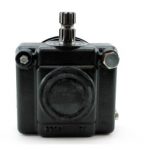LawnEQ is a trusted source for genuine OEM Parts- Shop for the part you need from your favorite manufacturers such as Landpride, Toro, Kubota, and more today on our OEM Parts Lookup Tool!
When it comes to discussing the kind of oil you want to use in your lawn mower, the idea of synthetic versus conventional oil is often debated. Some makers have recommendations one way or the other, but is there truly a better way to go?
Benefits of Synthetic Oil
All oil is slippery – otherwise, it wouldn’t make for a great lubricant would it? But for lack of a better term, synthetic oil is slipperier than conventional oil. This means that it will lubricate better, keeping your engine moving as needed, and will help your engine be efficient.
Synthetic oil also protects and lubricates in the widest temperature range. While conventional oils tend to have a limited temperature range for peak efficiency, synthetics can be adjusted for greater ranges. Synthetics also tend to collect dirt and debris in the system a bit better, meaning that when the oil is changed, more particulates are removed from your oil system.
Possibly the biggest issue that comes with using synthetic oil in a mower is that it tends to burn off faster, due to its efficiency. Combined with its higher cost, this could make for a decent money sink for the lawn and garden enthusiast with a mid-size lawn.
 Benefits of Conventional Oil
Benefits of Conventional Oil
Conventional is cheaper than synthetic – much cheaper. This means that, for an engine that gets limited use in only certain weather, it may be the more wallet-friendly way to go. For many, that fits the description of their lawn mower. For people with smaller yards, who only use their riding or push mower in the warmer weather, the added cost of synthetic may not provide enough benefits.
Two-Stroke or Two-Cycle Oil
A two-stroke or two-cycle engine should only use oil that is labelled for use in such a system. Do not deviate from using these specific oils, or it could harm your engine.
A Weighty Discussion
Whether you are using synthetic or conventional oil, you need to pay attention to the weight you are using. Both the synthetic and conventional oils are given different weights, such as a multiweight (10W-30 is a common example) or straight weight (“straight 30” is often cited). Multiweight oils consider different temperature ranges – 10W-30, for example, will perform like a 10-weight oil at the cold temperature specified, and like 30-weight at engine operating temperature. Straight 30 will perform like 30-weight at engine temperature, but gives no guarantees as far as cold starting and operating. If you are planning on operating equipment across a wide temperature range, multiweight is usually the way to go. If you plan on operating only in the warmer (40+ degree) weather, straight 30-weight is just fine.
In the end, your small engine will run with any oil for a period of time, so you can feel comfortable using pretty much any oil in a pinch. However, we wholeheartedly recommend using exactly the oil that your owners’ manual recommends for long periods of time. Companies recommend certain types of oil for a reason. You’ll see plenty of recommendations and anecdote floating around but, in the end, there is no better recommendation than the company that was warrantied your mower and the engineers that have designed it.







One thought on “Synthetic Versus Conventional Oil in Your Mower”
Comments are closed.